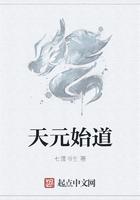“Ten dollars to a dinner at the Saint Charles,” remarkedMr. Vincenti, “that rouge wins.”
“I never bet against my own interests,” said CaptainCronin, lighting a cigar. “Long-winded old boy for his age.
What’s he talking about?”
“My Spanish,” replied Vincenti, “runs about ten wordsto the minute; his is something around two hundred.
Whatever he s saying, he’s getting them warmed up.”
“Friends and brothers,” General Pilar was saying, “couldI reach out my hand this day across the lamentable silenceof the grave to Olivarra the Good, to the ruler who was oneof you, whose tears fell when you sorrowed and whose smilefollowed your joy—I would bring him back to you, but—Olivarra is dead—dead at the hands of a craven assassin!”
The speaker turned and gazed boldly into the carriageof the president. His arm remained extended aloft as if tosustain his peroration. The president was listening aghast,at this remarkable address of welcome. He was sunk backupon his seat, trembling with rage and dumb surprise, hisdark hands tightly gripping the carriage cushions.
Half rising, he extended one arm toward the speaker andshouted a harsh command at Captain Cruz. The leaderof the “Flying Hundred” sat his horse, immovable, withfolded arms, giving no sign of having heard. Losada sankback again, his dark features distinctly paling.
“Who says that Olivarra is dead?” suddenly cried thespeaker, his voice, old as he was, sounding like a battletrumpet. “His body lies in the grave, but to the peoplehe loved he has bequeathed his spirit—yes, more—hislearning, his courage, his kindness—yes, more—hisyouth, his image—people of Anchuria, have you forgottenRamon, the son of Olivarra?”
Cronin and Vincenti, watching closely, saw DickyMaloney suddenly raise his hat, tear off his shock of redhair, leap up the steps and stand at the side of GeneralPilar. The Minister of War laid his arm across the youngman’s shoulders. All who had known President Olivarrasaw again his same lion-like pose, the same frank,undaunted expression, the same high forehead with thepeculiar line of the clustering, crisp black hair.
General Pilar was an experienced orator. He seized themoment of breathless silence that preceded the storm.
“Citizens of Anchuria,” he trumpeted, holding aloft the keysof Casa Morena, “I am here to deliver these keys—the keys toyour homes and liberty—to your chosen president. Shall Ideliver them to Enrico Olivarra’s assassin, or to his son?”
“Olivarra! Olivarra!” the crowd shrieked and howled. Allvociferated the magic name—men, women, children andthe parrots.
And the enthusiasm was not confined to the blood ofthe plebs. Colonel Rocas ascended the steps and laid hissword theatrically at young Ramon Olivarra’s feet. Fourmembers of the cabinet embraced him. Captain Cruzgave a command, and twenty of El Ciento Huilandodismounted and arranged themselves in a cordon aboutthe steps of Casa Morena.
But Ramon Olivarra seized that moment to prove himselfa born genius and politician. He waved those soldiers aside,and descended the steps to the street. There, without losinghis dignity or the distinguished elegance that the loss ofhis red hair brought him, betook the proletariat to hisbosom—the barefooted, the dirty, Indians, Caribs, babies,beggars, old, young, saints, soldiers and sinners—hemissed none of them.
While this act of the drama was being presented, thescene shifters had been busy at the duties that had beenassigned to them. Two of Cruz’s dragoons had seized thebridle reins of Losada’s horses; others formed a closeguard around the carriage; and they galloped off with thetyrant and his two unpopular Ministers. No doubt a placehad been prepared for them. There are a number of wellbarredstone apartments in Coralio.
“Rouge wins,” said Mr. Vincenti, calmly lighting anothercigar.
Captain Cronin had been intently watching the vicinityof the stone steps for some time.
“Good boy!” he exclaimed suddenly, as if relieved. “Iwondered if he was going to forget his Kathleen Mavourneen.”
Young Olivarra had reascended the steps and spokena few words to General Pilar. Then that distinguishedveteran descended to the ground and approached Pasa,who still stood, wonder-eyed, where Dicky had left her.
With his plumed hat in his hand, and his medals anddecorations shining on his breast, the general spoke to herand gave her his arm, and they went up the stone stepsof the Casa Morena together. And then Ramon Olivarrastepped forward and took both her hands before all thepeople.
And while the cheering was breaking out afresh everywhere,Captain Cronin and Mr. Vincenti turned and walked backtoward the shore where the gig was waiting for them.
“There’ll be another ‘presidente proclamada’ in themorning,” said Mr. Vincenti, musingly. “As a rule theyare not as reliable as the elected ones, but this youngsterseems to have some good stuff in him. He planned andmaneuvered the entire campaign. Olivarra’s widow, youknow, was wealthy. After her husband was assassinatedshe went to the States, and educated her son at Yale. TheVesuvius Company hunted him up, and backed him in thelittle game.”
“It’s a glorious thing,” said Cronin, half jestingly, “to beable to discharge a government, and insert one of yourown choosing, in these days.”
“Oh, it is only amatter of business,” said Vincenti,stopping and offering the stump of his cigar to a monkeythat swung down from a lime tree; “and that is what movesthe world of today. That extra real on the price of bananashad to go. We took the shortest way of removing it.”















